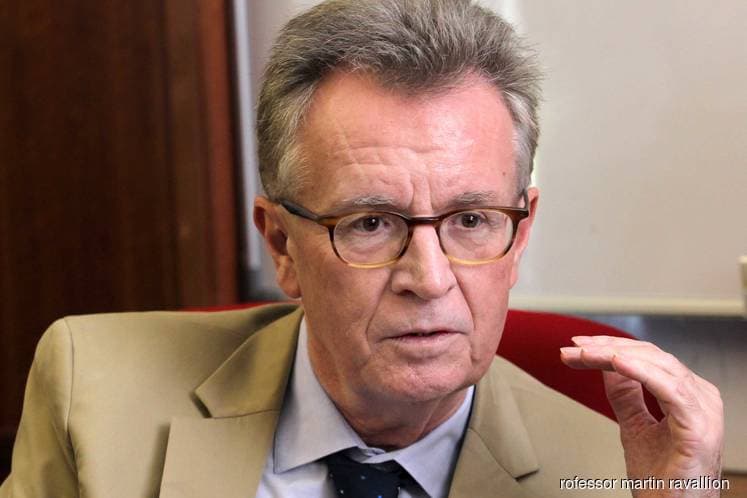
KUALA LUMPUR (Jan 29): Malaysia needs to redefine its poverty line, which has remained stagnant at a paltry RM7 a day for over 40 years, according to Royal Ungku Aziz Chair Professor Martin Ravallion.
“It should be three times that amount or more — it’s currently too low,” said Ravallion, who proposed the US$1-a-day poverty measure that came to be used by the World Bank.
He was speaking to reporters after a public lecture on the challenges of measurement and policy-making on income inequality at Universiti Malaya today.
Ravallion said that social protection efforts may also be failing to reach the poorest in society.
While programmes to address income inequality have focused on the bottom 40% (B40), Ravallion pointed out that many Malaysians may still be living in poverty.
“Lifting the floor (which is those at the very bottom) is crucial,” he said. In this respect, Malaysia has made only modest progress, Ravallion’s calculations shows.
On the bright side, the nation has done well in terms of reducing both its absolute and relative poverty rates. Even relative inequality has been trending downwards, Ravallion highlighted.
He noted that Malaysians as a whole appeared to have a positive attitude towards the underprivileged, showing sympathy for their situation.
However, a key issue that makes it difficult for researchers to properly assess poverty and inequality in Malaysia is a lack of access to data, Ravallion said. This has made it difficult to have properly informed public discussions about these issues.
This is also a roadblock in assessing the effectiveness of existing national policies, including Bantuan Sara Hidup, or the cost of living aid introduced by the current government.
“I don’t know how effective it is. Nobody knows whether it is effective or not,” said Ravallion, pointing to a lack of micro data available to researchers to understand poverty and income inequality in Malaysia.
He called for greater public access to the complete microdata, especially from the household income surveys compiled by the Department of Statistics Malaysia (DOSM).
Malaysia is one of the last countries to offer more comprehensive open data, with neighbouring countries such as Indonesia making significant progress in giving researchers access to data, he said.
“The concern is that being able to analyse and process that microdata will require a lot of training. But that training will come when there is access,” Ravallion said.
In this respect, the DOSM can go much further in making more granular data available for public use, he added.
Also, before the new Government can pat itself on the back for introducing a more targeted cost of living aid scheme, it should also ensure that its outcomes are properly measured.
“Monitoring and evaluation are crucial, but I see almost none of that in Malaysia,” Ravallion said.
He also stressed the importance of the Government being transparent about and learning from its mistakes.
“Citizens should hold their governments accountable to (those) standards,” he said.
Ravallion is supportive of minimum wage policies, but said that the Government should not try to push this too far above what businesses are able and willing to pay employees. In this respect, he opined that market forces should not be ignored in determining the equilibrium wage.